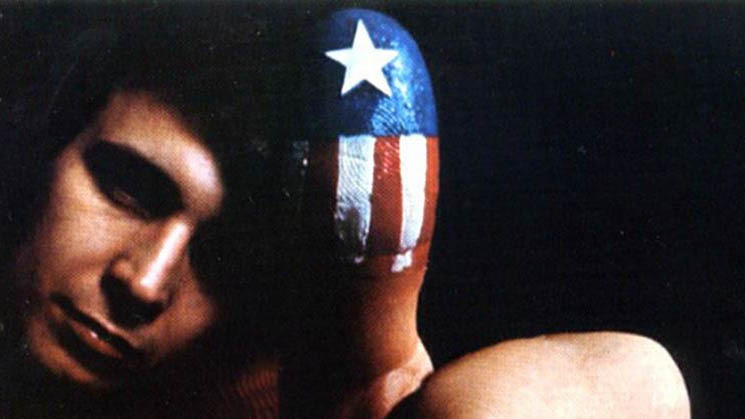Alright, lets break down Don McLean’s song “American Pie” lyrics meaning. “American Pie” is one of the most analyzed songs in rock history, written by Don McLean in 1971. The song is a nostalgic, poetic reflection on the changes in American music and culture, centering around “The Day the Music Died,” which refers to the 1959 plane crash that killed Buddy Holly, Ritchie Valens, and The Big Bopper. However, the lyrics extend beyond this event, weaving through pivotal moments in American history, including the cultural shifts of the 1960s. Let’s break it down verse by verse.
American Pie Lyrics Meaning
Verse 1:
A long, long time ago / I can still remember how that music used to make me smile
This opening sets a nostalgic tone, recalling a time when music was a source of joy. McLean likely refers to the 1950s, an era of rock and roll innocence.
And I knew if I had my chance / That I could make those people dance
The lyrics suggest that music had the power to bring happiness and unity. McLean may be reflecting on his own aspirations as a musician.
But February made me shiver / With every paper I’d deliver
This refers to February 3, 1959—the day Buddy Holly, Ritchie Valens, and The Big Bopper died in a plane crash. McLean, who worked as a paperboy, recalls delivering the tragic news.
I can’t remember if I cried / When I read about his widowed bride
McLean reflects on the impact of the loss, referencing Buddy Holly’s wife, María Elena, who was devastated by his passing.
But something touched me deep inside / The day the music died
This line cements the theme of the song: the loss of innocence and the end of an era in American music.
Chorus:So bye, bye, Miss American Pie / Drove my Chevy to the levee but the levee was dry
“Miss American Pie” symbolizes American culture and music. The “levee being dry” may signify the end of the 1950s’ musical era and the subsequent changes in America.
Them good old boys were drinking whiskey ‘n rye / Singin’ this’ll be the day that I die
This references “That’ll Be the Day” by Buddy Holly and reflects the changing, perhaps more cynical, state of American music and culture.
Verse 2:
Did you write the book of love / And do you have faith in God above
McLean references “The Book of Love” by The Monotones and questions whether people still believe in the values of the past.
Now do you believe in rock and roll? / Can music save your mortal soul?
This asks whether music still holds the same emotional and spiritual power that it once did.
Well, I know that you’re in love with him / ‘Cause I saw you dancin’ in the gym
Possibly referencing the shift in popular music and culture, as new artists replaced old ones.
I was a lonely teenage broncin’ buck / With a pink carnation and a pickup truck
A nod to Marty Robbins’ song “A White Sport Coat (And a Pink Carnation),” symbolizing the innocence of young love.
But I knew I was out of luck / The day the music died
The shift from innocence to disillusionment continues.
Verse 3:
A jester sang for the king and queen / In a coat he borrowed from James Dean
The “jester” is widely believed to be Bob Dylan, the “king and queen” may represent Elvis Presley and Little Richard.
And while the king was looking down / The jester stole his thorny crown
Dylan’s rise signified a shift from early rock and roll to folk music.
And while Lennon read a book on Marx
A reference to John Lennon and his leftist political interests.
The quartet practiced in the park
Likely referring to The Beatles and their influence.
And we sang dirges in the dark / The day the music died
A funeral song for the lost era.
Verse 4:
Helter skelter in a summer swelter
References The Beatles’ “Helter Skelter” and the chaotic 1969 Manson murders.
The birds flew off with a fallout shelter
Might reference The Byrds or Cold War fears.
Now the halftime air was sweet perfume
Could symbolize Woodstock and the hippie movement.
Verse 5:
And there we were all in one place / A generation lost in space
Possibly about Woodstock or the growing cultural divide.
So come on, Jack be nimble, Jack be quick / Jack Flash sat on a candlestick
Refers to The Rolling Stones’ “Jumpin’ Jack Flash.”
And as the flames climbed high into the night / To light the sacrificial rite
Possibly referencing the Altamont Free Concert disaster, which marked the end of the hippie era.
Verse 6:
I met a girl who sang the blues / And I asked her for some happy news
Janis Joplin is the likely reference, as she passed away shortly before the song was written.
And in the streets, the children screamed / The lovers cried and the poets dreamed
A poetic summary of the turbulence of the 1960s.
And the three men I admire most / The Father, Son, and the Holy Ghost
May refer to Buddy Holly, Ritchie Valens, and The Big Bopper, who “caught the last train for the coast”—a metaphor for their deaths.
Outro:McLean ends the song with another repetition of the chorus, reinforcing the sense of loss and the transition from one era to another.
Conclusion:
Album: American Pie
Artist: Don McLean
Genre: Folk rock
“American Pie” is not just about one event but a metaphor for the evolution of American music and culture. Each verse chronicles the transition from the innocence of the 1950s to the turbulence of the 1960s, with rock and roll as the backdrop. It remains an enduring classic, filled with poetic references and layered meanings that continue to spark discussions today.

